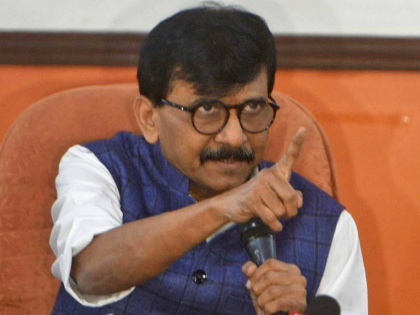“This Is a Collective Effort, Not One Party's Credit”: Sanjay Raut After Centre Declares Marathi as a Classical Language (Watch Video)
By Lokmat English Desk | Updated: October 4, 2024 12:18 IST2024-10-04T12:13:49+5:302024-10-04T12:18:20+5:30
Following the Union Cabinet's decision to grant classical language status to Marathi and four other languages, Shiv Sena (UBT) ...

“This Is a Collective Effort, Not One Party's Credit”: Sanjay Raut After Centre Declares Marathi as a Classical Language (Watch Video)
Following the Union Cabinet's decision to grant classical language status to Marathi and four other languages, Shiv Sena (UBT) leader Sanjay Raut hailed the move as a significant honour. Addressing a press conference on Friday, Raut noted that the demand for Marathi to receive this status has been raised for decades, with leaders from nearly all political parties in Maharashtra advocating for it over the last 30 to 35 years.
VIDEO | Here's what Shiv Sena (UBT) leader Sanjay Raut (@rautsanjay61) said on #Marathi getting the classical language status.
— Press Trust of India (@PTI_News) October 4, 2024
"It is a very big honour to include Marathi as classical language. Demand for this was being raised since last several years. Every party, leaders and… pic.twitter.com/lc4nrXdvhV
"It is a very big honour to include Marathi as classical language. Demand for this was being raised since last several years. Every party, leaders and CMs of the state had been demanding this for the last 35 years. If this has happened today, then it is collective effort. It is not one party's credit," Raut said.
Raut also criticised the ruling Bharatiya Janata Party (BJP) for taking credit for the achievement. "The BJP will take credit, and they should take credit for Corona, where so many people died in the country, especially in Maharashtra," he added.
On Thursday, the Union Cabinet approved the status of classical language for Marathi, Pali, Prakrit, Assamese, and Bengali. The Government of India established the classical language category on October 12, 2004, declaring Tamil as the first classical language. The criteria for this status require that a language has high antiquity in its early texts or recorded history, a body of ancient literature regarded as a valuable heritage, and an original literary tradition that is not borrowed from another speech community.
The Ministry of Culture formed a Linguistic Experts Committee (LEC) in November 2004 to assess proposed languages for classical status. The criteria were revised in November 2005, leading to Sanskrit being declared a classical language. Since then, the government has conferred classical language status to Tamil in 2004, Sanskrit in 2005, Telugu and Kannada in 2008, Malayalam in 2013, and Odia in 2014.
Read Also | Classical languages list expands: Marathi, Pali, Prakrit, Assamese, and Bengali now recognised
Open in app